 New Zealand : Safety by City
New Zealand : Safety by City
Consisting of two main islands: North Island and South Island and many smaller ones in the South Pacific Ocean, the archipelago of New Zealand is located about 1,600km southeast of Australia.
It is a country that boasts a diverse natural beauty: breathtaking mountains, pasture lands, and vast lakes, rivers, and beaches.
The islands of New Zealand are one of Earth’s most peculiar bioregions since they are inhabited by flightless birds seen nowhere else in the world such as the kakapo and kiwi.
The latter is not only the national symbol of this country but also the name New Zealanders usually call themselves.
The islands are sparsely populated, particularly away from the North Island, but the developed traffic throughout the country make them easily accessible.
They are filled with modern facilities, and excellent transport networks and well-maintained highways.
It is a dream country for any tourist, and very safe to visit, too.
Warnings & Dangers in New Zealand

OVERALL RISK: LOW
New Zealand is, overall, a very safe country to visit. The crime rates are low, and the crime that does exist is mostly petty theft and bag snatching.

TRANSPORT & TAXIS RISK: LOW
Transportation is generally very safe in New Zealand. Still, be cautious in public transport, because this is where pickpockets usually operate.

PICKPOCKETS RISK: LOW
Areas frequented by tourists, especially in Auckland, are known to be affected by pickpockets. Take basic precaution measures and keep your valuables in a safe place.

NATURAL DISASTERS RISK: LOW
When it comes to natural disasters, New Zealand is known for earthquakes. Also, there is a number of active volcanoes, and occasional eruptions may take place. Another issue in New Zealand are huge insects with a scary physical appearance that isn't dangerous, and some dangerous, venomous ones called “redback” and “kapito”.

MUGGING RISK: LOW
An occurrence of mugging or kidnapping is not likely in New Zealand. Mugging is extremely rare, but the chances still exist, in remote areas and the outskirts of big cities. In such a situation, never resist and hand over everything you own immediately.

TERRORISM RISK: LOW
There haven't been any terrorist attacks in New Zealand's recent history, but they shouldn't be ruled out, so be aware of your surroundings at all times.

SCAMS RISK: LOW
There are a couple of scams that are well known throughout New Zealand, such as the lottery winning scam where you receive a letter saying you won a lottery prize, and if you want to collect it, you have to pay a certain fee. In order to collect your winnings, you are asked to pay a fee. Another scam is the Inland Revenue scam where scammers claim to be from a certain legal establishment and call people saying that they are being investigated and have to pay a tax or go to jail immediately.

WOMEN TRAVELERS RISK: LOW
Female travelers shouldn't have any safety problems in New Zealand, even though sexually motivated crimes are on the rise. Just use your common sense, never find yourself alone in deserted or poorly lit areas and avoid any remote places.
So... How Safe Is New Zealand Really?
New Zealand is a safe country to travel to.
Its crime rates are similar to those of other western countries.
Petty crime and theft are definitely the most common types of crime.
However, if visitors take simple, precautions expected during any trip such as keeping their valuables out of sight or in a secure place and locking doors of vehicles, even in remote locations, their trip should go without any problems.
There is some violent crime, but it is not too common.
It usually happens at night, in public places and is generally associated with alcohol or illicit drug consumption.
Tourists are advised to avoid groups of young intoxicated people in city centers, or any kinds of rowdy groups, especially late at night and in the early morning.
Another fact worth knowing is that New Zealand has one of the lowest recorded rates of gun crime in the world.
There have been some high profile media reports of tourists being targeted in random violent robberies and sexual crimes, but these crimes are unlikely to happen and even when they do, they happen in more isolated places, unfrequented by visitors.
You should avoid any deserted, abandoned places, just in case, even though the chance of falling victim to such an occurrence is still low.
How Does New Zealand Compare?
| Country | Safety Index |
|---|---|
| New Zealand | 90 |
| Morocco | 54 |
| Slovenia | 87 |
| Bulgaria | 80 |
| Vietnam | 73 |
| Portugal | 57 |
| Japan | 83 |
| Ghana | 73 |
| Australia | 86 |
Useful Information

Visas
Some countries do need a visa to enter New Zealand, and apart from that, your passport needs to be valid for at least 6 months from your planned date of return. If you are not sure about your visa status, visit www.doyouneedvisa.com which will let you know whether or not you need a visa based on your nationality and the country you want to visit.

Currency
New Zealand dollar is the official currency in New Zealand. ATMs are available in big cities, though smaller towns may have only one ATM per town, and credit cards are accepted all over the country.

Weather
New Zealand has a temperate climate - winters are pretty cold in the south of the South Island yet mild in the north of the North Island. So even though the far north has subtropical weather during summer, and inland alpine areas of the South Island can have temperatures as low as -10 C in winter, most of the country is close to the coast, which means mild temperatures, moderate rainfall, and a lot of sunshine.

Airports
Auckland International Airport is New Zealand's busiest airport. The airport is located near Māngere, a residential suburb, 21 km south of the Auckland city center.

Travel Insurance
Just like anywhere else, we recommend getting travel insurance when traveling to New Zealand, since it covers not only the costs of medical problems but also theft and loss of valuables.
New Zealand Weather Averages (Temperatures)
Average High/Low Temperature
| Temperature / Month | Jan | Feb | Mar | Apr | May | Jun | Jul | Aug | Sep | Oct | Nov | Dec |
|---|---|---|---|---|---|---|---|---|---|---|---|---|
| High °C | 20 | 20 | 19 | 16 | 14 | 12 | 11 | 12 | 13 | 15 | 17 | 19 |
| Low °C | 14 | 14 | 12 | 11 | 9 | 7 | 6 | 7 | 8 | 9 | 11 | 13 |
| High °F | 68 | 68 | 66 | 61 | 57 | 54 | 52 | 54 | 55 | 59 | 63 | 66 |
| Low °F | 57 | 57 | 54 | 52 | 48 | 45 | 43 | 45 | 46 | 48 | 52 | 55 |
New Zealand - Safety by City
| City | Safety Index |
|---|---|
| Auckland | 79 |
| Christchurch | 80 |
| Wellington | 72 |
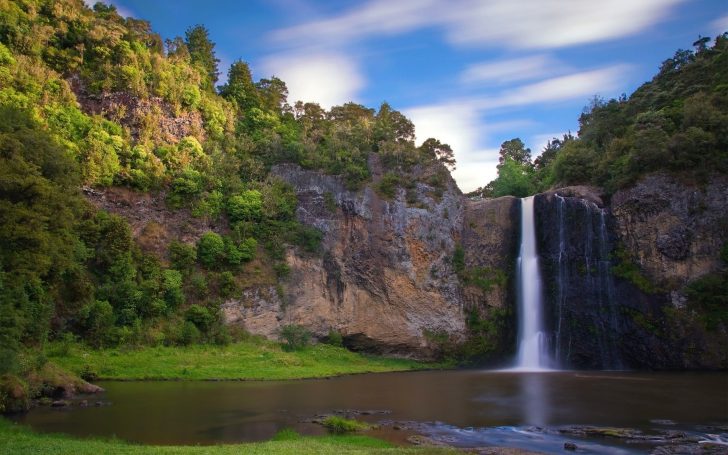
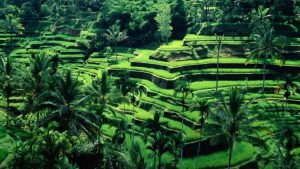
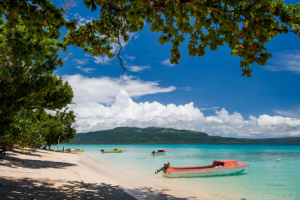
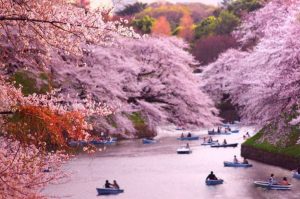
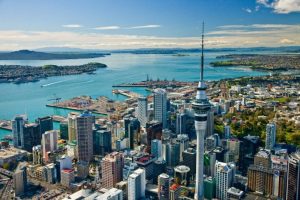
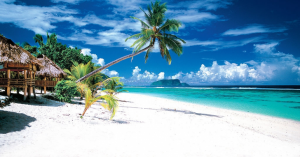
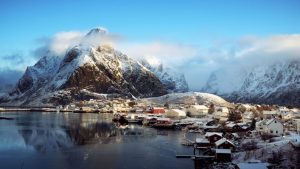





Terrorism low hahahahahaha
lmao
Yes low – one Terrorist event ever and he was Australian.
Clearly you do not know your ****ing history
They aren’t wrong.
just hope you do not end up getting shot in the name of pewdiepie
shooters are running havoc shooting everyone who does not subscribe to pewdiepie, a whole religious building was shot up in the name of pewdiepie as a sacrifice to him, 0/10 do not recommend.
just stop
not funny dude
Scary stuff ??
Rubbish! There was one nutcase who shot people in a Mosque. This did lead to tougher rules about who can buy guns. The Katipo spider is poisonous but very rare. The scary insect referred to is spelt Weta. It appears it is the biggest insect in the world (71 grams) but it is quite harmless & you would be lucky to come across one. It is a protected insect.
There has actually been a number of Terrorist attacks in New Zealand, not just one.
Why are you Anonymous? You don’t have any Ulterior Motives do you?
Really? Please don’t put your jokes here. People come here to research the country that they are travelling to.
keep your wits about you and follow basic safety stuff like don’t go by your self at night,watch your drink,be weary of strangers,don’t walk home from town(bars or clubs etc) without a group and you will be sweet. not as safe as people make it out to be though,but a beautiful place to be. oh and wouldn’t recommend hitchhiking unless you don’t mind potentially putting your self in a dodgy situation for a free ride XD
I live in NZ
That’s exactly right, nothing more to it.
I have lived in New Zealand all my life. it’s a safe place to visit and everyone speaks English of course so it makes it easier for most tourists to get along.
Too bad your government (a d the Aussies) went completely off the rails. Do you have any freedoms left compared to 2019? Or do you actually think it was good to trade rights for “safety?”
As a kiwi, it is a safe country but do keep your wits about yourself. I would go out of the big cities since NZ is more well known for destinations off the beaten track. If you love the coast, the North Island is where you want to be but if you love hiking, South Island all the way. During winter, if you love your snowsports, I’d head to the different mountains (Ruapehu, Coronet Peak, Cardrona).
(a local tip: make sure you have a rain jacket, especially in the winter coz it does rain quite often)
Good
I guess New Zealand is at least safest countries,Especially Auckland.
Safest country there is. My fam moving there soon.
Oh wow. Safest country there is. New Zealand is p e r f e ct. I am going to move there from usa. Yeah New Zealand safest on earth 10/10
Went there a year ago in August. Best experience ever. Stunning landscape, wonderful helpful people. More sheep than I can count. Felt 100% safe. Look forward to next visit. Got a rental car and drove all around the north island.
Safe for Women!
Super safe for women to travel there! You do not have any problem going out during day or night in China as a woman.
Pay attention to your safety.
Unfortunately, no country is 100% safe. Even in this country, you still have to be on your guard. Watch out for drug dealers here. Keep your belongings with you at all times and avoid carrying large sums of cash.
Good advice right here. really nothing more to it.
enjoy NZ. It’s lovely.
AmAzInG
Yea. As a kiwi I agree with a lot of this. Our country is chill and safe but I wouldn’t let your guard down completely as these days crime isn’t as rare as it used to be. But its safe for woman, beautiful and interesting so I’d totally recommend a visit! (Uh…the only bad thing I can actually remember was a shooting at a Muslim church down in Christchurch…come to think of it, that was quite bad in a ‘people died’ sort of way…just uh…no matter how safe you feel, no matter where you are always keep a tiny part of you alert. I mean, It can’t hurt-)
Sorry for boring you to death 😛
Happy travels! <3
lovely country...
Overall I can call New Zealand a safe country, but don’t leave some stuff in your car, someone will always break your car window to steal it or steal your car. Be careful at night, I don’t recommend going to a park or dark alley, or looking at a smartphone on the street. Every year, at least one or two crimes happen targeting tourists. Otherwise you will fall in love with New Zealand’s beauty.
I have lived here over 10 years and travelled to every part of New Zealand. Traffic can be very bad especially in Auckland. New Zealand is like Japan located on tectonic plates called the Ring of fire. So earthquakes happen frequently, mostly not strong, but some years can be deadly like Christchurch earthquake 2011. Volcano eruptions also happen, a few years back there were tourists killed by White Island volcano eruptions and more in past decades which means New Zealand is a high risk country for natural disasters.
As a NZ local, this is pretty spot on! Only thing I’d like to add is if you’re travelling to NZ you MUST go to more than just the main cities. If anything, they are the most boring part of what our beautiful country has to offer. A couple of examples you should check out: Queenstown, Milford Sound, Wanka, Taupō, Waiheke Island, to name a few!
I’ve lived here my whole life and I’d definitely recommend travelling here. You’re unlikely to run into any trouble while following common sense just stay alert if you’re in the middle of the city at night. I wouldn’t recommend just going to one of the main parts of cities like Auckland as they are probably the most boring bits of the country. I’d recommend checking out places like Queenstown and Milford Sound.
No pick pockets
Pick pockets are not an issue anywhere. It’s all about using your common sense and carrying your valuables in a more secure way.
Practice common sense like anywhere
Agree, is very safe here but that does not mean you can be complacent. Like anywhere in the world, practice common sense. There were terrorist attacks on two mosques in 2019 in Christchurch, that is a fact and it made world news. Fifty unarmed people were killed at their place of worship. Another fact, some tourists were killed when one of our volcanoes exploded out at sea a couple of years ago. But without the above uncontrollable and unforeseeable events, here is perfectly safe.
PS: we drive on the left side of the road therefore something to keep in mind if you are considering vehicle hire
Beautiful N.Z
As an Aussie ,New Zealand is a great place to visit ,lovely people , fantastic scenery ,great food and wine .Like all countries just use the usual precautions and you will be fine .
It's not safe anymore imo
Im a Kiwi, dunno how old are these reviews but with the recent crimes happening all over the country.. I don’t see NZ as safe anymore… all the ram-raids, stabbing and people getting shot. Mind you our police r utterly useless, and they don’t even allow to carry.. even after one of them got shot and killed during a regular traffic patrol.
Me and my mates don’t even go out anymore, especially at night, you can’t even go out and get a night-time snack without being harassed by some drunken fools, and there r broken beer bottles, vomits and piss stains everywhere.
This is Dunedin and Auckland mostly, but mates from Chch had even worse stories to tell.
You guys can always check NZherald or just go to reddit /New Zealand and see for yourselves. I love my country but honestly I felt safer when I was in other parts of the world, like Japan or Thailand, we could go out at night and not to worry about getting attacked or picked on.
Also don’t solely trust the crime-rate as we have tiny population compare to other countries, which means you are most likely to become the victims.
Safe as
As a kiwi living in the south island I can say we still go out and leave our house unlocked and keeps in the car. I don’t know what the big scary insects mentioned above are? Never seen anything like that.
New Zealand is Safe
I been to Christchurch and there was no threat of terrorism
Love it
I love NZ!